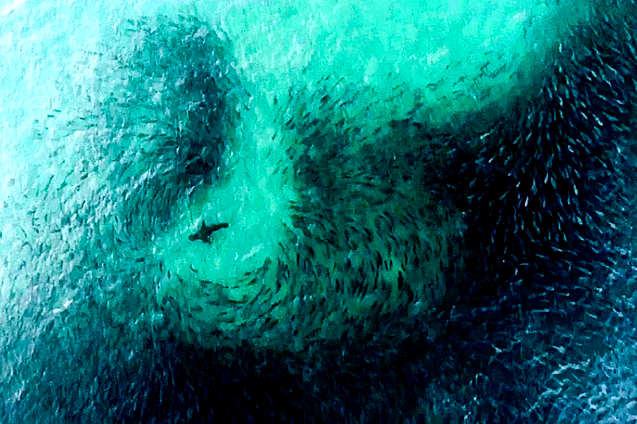Southern Australia’s sharks and rays face mounting threats as warmer waters push more tropical species southwards and habitats change, exacerbating threats to critically endangered species.
A study aimed at identifying the risks to some 132 different species found in waters ranging from south-west Western Australia to NSW has been published in the Fish and Fisheries journal. It seeks to give authorities a method to prepare for the threats of overfishing and climate change.

|
|
A grey nurse shark, one of the shark species in Australian waters
that is already endangered before the impacts of climate change
take effect. Credit: Erik Schlögl |
While tighter controls on commercial fishing since the early 2000s had arrested the decline of many shark, ray and chimaera species such as elephant fish, those gains could be eroded as more tropical species such as tiger and bull sharks extend their ranges southwards, the researchers said.
Region covered by fisheries study
|
|
Source: Fish and Fisheries |
|
Extreme weather 
|
|
From drying rainforests to heavier downpours, Australia’s climate is changing |
“Everything points to an urgent need to rapidly adjust how fisheries work.”
The paper also found that at present fishing levels, as many as six species already assessed as endangered including the school shark and maugean skate will have their recovery hampered by southward-migrating rivals.
Richard Reina, a marine ecologist at Monash University and another of the paper’s authors said southern Australian waters were changing faster than other parts of the country and it was also the most heavily fished by commercial firms.

|
|
The endangered Maugean Skate which has an extremely narrow
distribution. It is closely related to a Gondwana ancestor which
lived off southern Australia some 80 million years
ago. Credit: CSIRO |

|
|
An elephant fish in Victoria’s Westernport Bay. The animal is
among those at risk as waters warm and northern species move
in. Credit: Kelvin Aitken |
|
Sharks 
|
| What do sharks want – and why do they bite? |
In some cases, that will involve increasing the areas where fishing is restricted or banned to give the at-risk species a chance of survival.
Many sharks in particular sit at the top of the food chains, keeping ocean ecosystems stable.
“If you look after sharks and rays, you’re looking after our broader food chains,” Dr Guida said. “It affects what fish ends up on your table – if it gets there at all.”

|
|
A great white shark approaching a huge school of salmon close to
shore at Tamarama Beach. Credit: Dronesharkapp.com |
- (NPR) Heat Wave Killed An Estimated 1 Billion Sea Creatures, And Scientists Fear Even Worse
- Shark Conservation is Essential to Tackle Climate Change
- An assessment of how Australian fisheries management plans account for climate change impacts
- Maintaining sustainable fisheries in a changing climate
- Australia announces $100 million initiative to protect our oceans
- Study first to explore combined impacts of fishing and ocean warming on fish populations
- Going Fishing in a Changing Climate
- Climate change: underwater forest decline
- Like in ‘Postapocalyptic Movies’: Heat Wave Killed Marine Wildlife en Masse

No comments:
Post a Comment